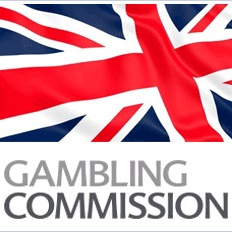What the Gambling Participation Study Tells Us About UK Market

The UK Gambling Commission (UKGC), the agency responsible for regulating gambling in the United Kingdom, recently released a report entitled “Gambling participation in 2016: behavior, awareness and attitudes” in which it shared its findings concerning the attitude and gambling habits of its local residents. A total of 2,000 interviewees aged 18 and over were asked a range of questions in order to determine how many people in the United Kingdom gamble, how frequently they do so, and to gauge their attitudes and beliefs regarding gambling in general. Here are some of the biggest takeaways from the report:
– People in the United Kingdom believe gambling should be legal. According to the study, more than two-thirds of respondents feel that gambling should be legal and that people should be free to do so whenever they want. This means that even among those who do not gamble, there is still support for gambling.
– Gambling is on the rise in the United Kingdom. The study found that 48 percent of study participants had gambled at least once within the previous 4 weeks. That marked a 3 percent increase in monthly participation compared to the findings of a similar study conducted in 2015.
– Men gamble more heavily than women do. The study found that gambling has increased among both men and women in the United Kingdom, but that more gamblers were male. Specifically, the study found that 53 percent of men and 44 percent of women gambled in 2016. In men, that’s a 3 percent increase compared to 2015’s numbers, while the increase in gambling among women amounted to less than 1 percent.
– Online gambling makes up a small percentage of overall gambling. Roughly 17 percent of those that responded said that they gamble online, with an overwhelming majority (97%) of the people who do gamble online doing so at home. This data appears unchanged compared to the 2015 study data.
– Mobile device gambling is on the rise. In 2015, only 43 percent of respondents had used their smartphones or tablets to gamble. The 2016 study showed that the number had risen by 10 percent with 53 percent of those surveyed reporting that they had placed bets on mobile devices during the year.
– Social media is an effective way to market gambling to millennials. Among those between the ages of 18 and 24, social media advertisements were often cited as the reason why participants visited gambling sites or used gambling mobile apps. A whopping 67 percent of people in the age group said that they had gambled after seeing one of these ads.
– Problem gambling remains only a minor problem but is growing. Only 0.7 percent of participants indicated that they had gambling problems in the 2016 study. That does mark a 0.2 percent increase over the number of self-reported problem gamblers in 2015. By extrapolating the numbers over the population, the UK Gambling Commission believes that about 5.5 percent of all people in the UK have some form of gambling addiction.
Concerning Aspects of Study
While there are many positives associated with the recent study, there are also a number of aspects that give cause for concern. One of those is that most players are unaware of the terms and conditions offered by betting operators, and in particular as they relate to free bet promotions, and betting odds being offered. According to the study, a mere 23 percent of participants who used online or mobile gambling sites said that they carefully read the terms and conditions. Furthermore, 24% of those people who had read the “long winded” terms and conditions felt that they were unfair, especially in terms of wagering and qualification requirements, availability, and unattractive odds.
In addition, while UK respondents overwhelmingly believe that gambling should be legal in the UK, 78% of those people believe that there are currently too many opportunities for people to gamble, with 69% stating their belief that gambling posed a danger to family life. Finally, the number of gambling shops on the high street topped the list of public concerns, although in terms of gambling policy, the interviewees ranked the following aspects in order of importance, as explained by Ted Menmuir on sbcnews.co.uk:
“Having controls in place to ensure that children and young people are not exposed to gambling; increased regulation of non-UK based online gambling operators; and setting a stake limit on machines in bookmakers’ premises.”










